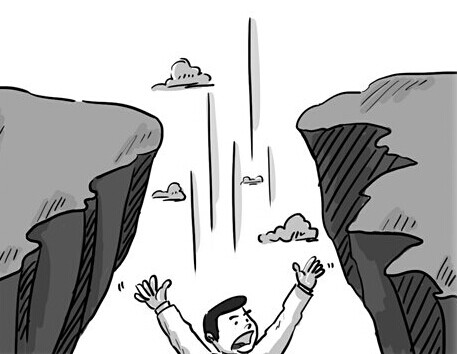

Illustration: Chen Xia/GT
Modern Asia's economic ascension started in Japan. In the 1950s and 1960s, Japan underwent a period of rapid - many would say "miraculous" - economic development. Then came the rise of the "Four Asian Tigers," as Hong Kong, Singapore, South Korea and Taiwan quickly developed their own industrialized economies. The Chinese mainland and India joined the trend in 1979 and 1992 respectively with the launch of sweeping economic reform and opening-up campaigns.
Since the 2008 financial crisis, the global economy has experienced a profound rebalancing. With developed nations in Europe and North America just now grinding their way toward tentative recoveries, many see Asia's emerging economies as the world's new growth engines.
But contrary to this popular belief, Hua Min, a professor of economics at Shanghai's Fudan University, expressed concerns at the just concluded 2014 Shanghai Forum that Asia's long-standing growth strategies are unsustainable.
These days, it is not hard to find evidence to support such views. Japan, for instance, has yet to completely shrug off the malaise that came with the cataclysmic bursting of the country's bubble economy in the 1990s. And now planners on the Chinese mainland are confronting an unknown economic future after some three decades of blistering GDP growth.
According to statements made by Hua, he believes that economic growth in Asia will be hampered by three structural problems. First, most of the region's emerging economies achieved relative prosperity thanks to policies designed to pick low-hanging development fruit. But heavy levels of government involvement have displaced the role of the market, suppressing creativity and innovation as well as the dynamics of supply and demand.
Second, Hua regards Asia's low position on the global value chain as another problem. Asia is still mainly a place of assembly and low-end manufacturing, while most of the world's cutting-edge innovations and designs are still coming out of the developed world. This pattern leaves Asia dependent on imported resources and technologies.
Third, the similarity of Asian products and services means that economies in the region often view each other as rivals rather than potential partners. This lack of diversity - which is itself a major liability - makes it difficult to forge lasting economic alliances.
Similarly, administrative efforts to develop consumption as a basis for economic growth are not without problems, Hua went on to mention. In his view, consumption is a result of growth rather than a means to achieve economic expansion. As rising levels of productivity elevate personal income levels, people will naturally consume more. But if jobs become scarce and income growth slows, consumption will surely take a hit as well.
It could be argued, as Hua himself did, that Asian consumption has been stifled by incomplete industrialization. Most Western nations underwent an industrial revolution some two centuries ago, paving the way for the slow transformation that eventual drew millions of people away from low-productivity farm work and into urban manufacturing and service jobs. But in many developing Asian nations, the continued prevalence of subsistence-level farming naturally puts a brake on spending.
Facing such a massive bottleneck, how will economic planners in Asia find breakthroughs? First, governments should emphasize controls on production costs and land prices with an aim toward maximizing productivity. Second, more work must be done to modernize the agricultural sector in order to free up more people for urban employment. Lastly, trade and investment liberalization strategies should be explored as a way to strengthen economic cooperation within the region.
Young Chinese drive consumption
2014-05-05China‘s consumption to continue booming: MOC
2014-04-17Chinese urbanization to boost consumption
2014-03-18Consumers‘ outlook brightens in May
2014-05-29Consumers remain confident in Q1
2014-05-28Chinese consumers remain bullish in Q1
2014-05-27Copyright ©1999-2018
Chinanews.com. All rights reserved.
Reproduction in whole or in part without permission is prohibited.